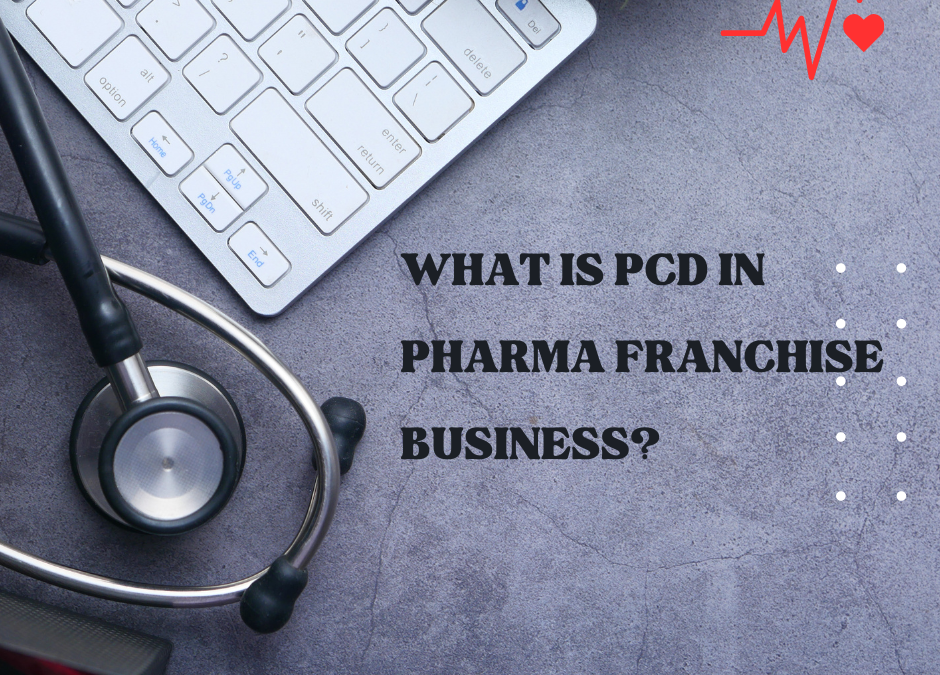What is PCD in Pharma Franchise business?
In the ever-evolving pharmaceutical industry, various business models facilitate the distribution of medicines and healthcare products. One such model is the Pharma Franchise business, with its subsets, such as PCD. PCD stands for ‘Propaganda Cum Distribution’ and plays a pivotal role in expanding the reach of pharmaceutical companies and ensuring the availability of quality medicines across the country. In this blog, we will delve into the details of PCD in the Pharma Franchise business, exploring its significance, working, advantages, and challenges.
What is PCD in Pharma Franchise Business?
PCD, or ‘Propaganda Cum Distribution’, is a business model within the Pharma Franchise sector. It allows pharmaceutical companies to extend their market presence and distribute their products in a more extensive geographical area. Under this model, the parent pharmaceutical company grants the rights to an individual or an entity to promote, market, and distribute its products in a specific region. In return, the franchisee (individual/entity) gains the benefit of utilizing the established brand name, product line, and marketing support of the parent company.
Working of PCD in Pharma Franchise Business
The working of PCD in the Pharma Franchise business involves several steps:
- Agreement: The parent pharmaceutical company enters into an agreement with the interested party, often called the ‘PCD Franchisee’. The agreement outlines the terms, rights, responsibilities, and obligations of both parties.
- Product Selection: The parent company provides a range of pharmaceutical products to the franchise. The franchisee typically has the flexibility to select the products they want to promote and distribute in their designated region.
- Promotion and Marketing: The franchisee is responsible for promoting the selected products within their territory. They utilize marketing materials, strategies, and support provided by the parent company to reach healthcare professionals, hospitals, clinics, and pharmacies.
- Distribution: Once orders are received, the franchisee manages the distribution of products to healthcare providers and retailers within their region. They ensure timely delivery and availability of medicines.
- Sales and Reporting: The franchisee makes sales to healthcare professionals and retailers. Regular reporting to the parent company about sales, inventory, and market trends is a common practice.
- Support: The parent company often provides ongoing support to the franchisee, including training, marketing materials, and assistance in addressing any challenges that arise.
Advantages of PCD in Pharma Franchise Business
- Established Brand: Franchisees benefit from the established brand reputation of the parent pharmaceutical company, which makes it easier to gain trust in the market.
- Lower Risk: Since franchisees operate within a proven business framework, the risks associated with setting up a new business are reduced.
- Wide Product Range: Franchisees can choose from a variety of pharmaceutical products to cater to the specific needs of their region.
- Marketing Support: Franchisees receive marketing materials, strategies, and guidance from the parent company, saving them the effort of developing their marketing campaigns.
- Monopoly in Region: The franchisee often enjoys exclusive rights to promote and distribute the parent company’s products in their designated region, reducing competition.
Challenges of PCD in Pharma Franchise Business
- Initial Investment: Setting up a PCD franchise requires an initial investment for infrastructure, inventory, and marketing.
- Regulatory Compliance: Adhering to complex pharmaceutical regulations and quality standards can be challenging for franchisees.
- Market Competition: While the parent company may limit competition within the franchisee’s region, they still need to compete with other pharmaceutical brands.
- Supply Chain Management: Ensuring a seamless supply chain and timely delivery of products can be demanding.
- Sales Dependence: The success of the franchise largely depends on the sales efforts and capabilities of the franchisee.
Conclusion
In the realm of pharmaceuticals, PCD in the Pharma Franchise business stands as an effective model for extending market reach and ensuring the availability of medicines across diverse regions. By leveraging the brand reputation and support of the parent pharmaceutical company, franchisees can establish thriving businesses while contributing to better healthcare access. However, navigating the challenges and intricacies of this business model requires dedication, compliance, and a strategic approach. Whether you’re a pharmaceutical company looking to expand or an entrepreneur aiming to venture into the pharmaceutical sector, understanding PCD can open doors to exciting opportunities in the dynamic world of healthcare.

